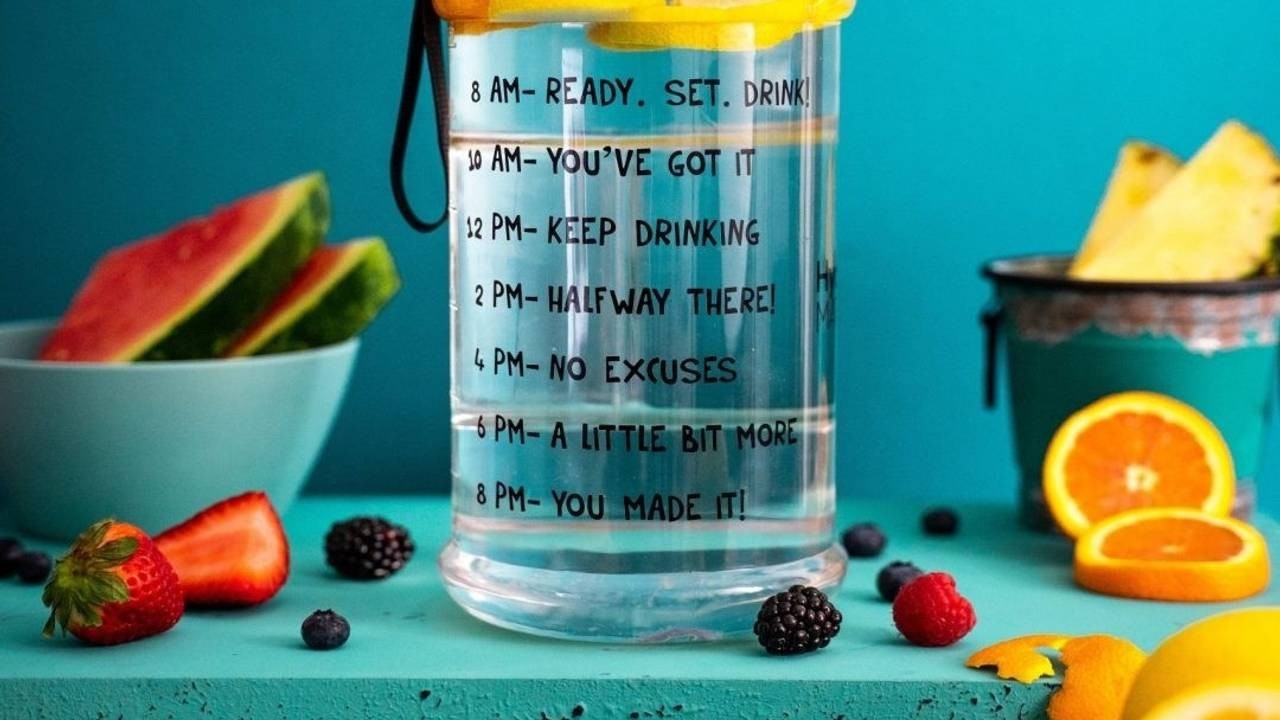3 of the Best Hydration Tips to Quench Your Thirst
Dec 07, 2021
by Doc Mok
This week we dive deep into The Best Hydration Tips. Sports drinks, post-work-out beverages, water, and electrolytes, OH MY! What solutions do you need for hydration? Is it important to replenish your electrolytes and how much do you need? How do you know what to use?
Hydration and electrolyte replacement are confusing and most advice is fueled by poor science. Read on to find out the best strategies.
The Basics of Water and Electrolyte Balance
Water composes 60-70% of the body. The water in our bodies is balanced via a complex interaction between sensors in the brain (pituitary gland), kidneys, GI tract, and skin.
Electrolytes serve a role in many bodily processes including muscle movement, making the heart pump, and making the neurons fire. Without them, the body couldn’t perform these vital functions. Examples of electrolytes include sodium, potassium, magnesium, and phosphorous.

Through perspiration you lose water and electrolytes.
Water and electrolytes are lost through sweating, urinating, bowel movements, and vomiting. Typically, more water than electrolytes is lost. By drinking water and eating a balanced diet, these electrolytes are easily replenished. Thirst is the body’s signal that more hydration is needed.
Pretty simple, huh? Why has it gotten so complicated?
Hydrate to Thirst NOT to Numbers
Within the body, there is a mechanism that regulates hydration. It is called THIRST! Issues arise when we ignore the thirst message and over-hydrate
It is often recommended that we each need to “drink 6-8 eight-ounce glasses of water per day.” The government recommends 2.7 Liters (roughly 12 glasses per day) for women and 3.7 Liters (roughly 16 glasses per day) for men.
The American College of Sports Medicine (ACSM) released a consensus statement regarding hydration stating that “during exercise, athletes should start drinking early and at regular intervals in an attempt to consume fluids at a rate sufficient to replace all the water lost through sweating (i.e., body weight loss), or consume the maximal amount that can be tolerated.”

Hydrate to thirst not numbers
Yet, patients come to the office with urinary urgency, frequent urination, nocturnal urination. Why? They may be drinking too much fluid!
Yes, the water is necessary, but overhydration can lead to a concerning condition: hyponatremia. Hyponatremia occurs due to high water levels, not due to low salt levels. This can cause the brain to swell inducing seizers, muscle issues, and even coma. Hyponatremia affects 10-15% of elite runners and triathletes 10-15%. Overhydration can even lead to death.
So, what is the key to avoiding this issue? Pay attention to your thirst. Hydrate to resolve thirst, then stop If you are urinating regularly and your urine is a clear yellow color, you are hydrated.
Water is Better for Hydration
Thirst indicates that the body needs hydration, but what about replacing lost electrolytes? Search any fitness website and you will come across something like, “based upon extensive literature sports drinks are superior to water for rehydration in athletes.” Based on a review of the literature, the evidence is weak, at best.

Sport drinks are popular, but the evidence is lacking
Your body as an athlete (YES THAT IS WHAT YOU ARE!) is a well-oiled machine. When you sweat, spit or get rid of waste, yes you lose electrolytes (sodium, potassium, etc), in addition to water. If that is true and hydration (replacement of water) leads to hyponatremia, then how do you replace electrolytes?
Sports drinks advertise. Remember MJ dunking with his secret to success…a sports drink. Ripped athletes and well-known sports figures alike a carpeted all over the sports drink industry campaigns. To us, these projects a sense of relation…if the sports stars are doing it…I should too. Yet, what about these mountains of scientific research.

Sorry MJ, water is better
If you delve into the literature, as did a group in 2012, you find that the majority of these studies did not have enough participants and there is a mountain of preliminary and inconclusive data. Some of these studies even inflated their numbers to reach their study goals.
A mountain of evidence does exist, but a lot of the data is of poor quality and is inconclusive. The body is easily able to replenish electrolytes via the food we consume. Therefore, hydrate with water unless you are fasting between workouts. If your body craves specific food after exercising (salt for instance), then listen to it and take action.
Conclusion
Water is a vital part of training and recovery, but like all things, too much can be a bad thing. Listen to the thirst mechanism to regulate your water intake and replenish your electrolytes in the form of nutritious foods. The science on rehydration is limited at best, driven by advertising, and often conducted via poor methods. In the end, the approach is simple: listen to your body!


